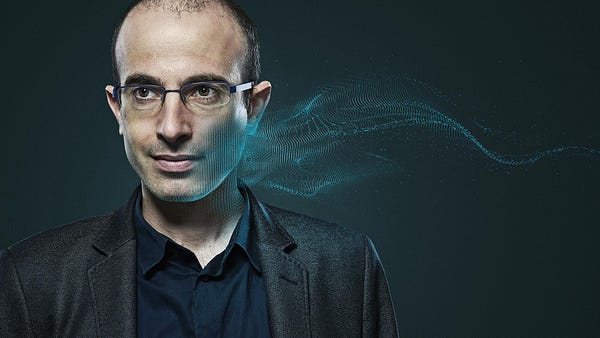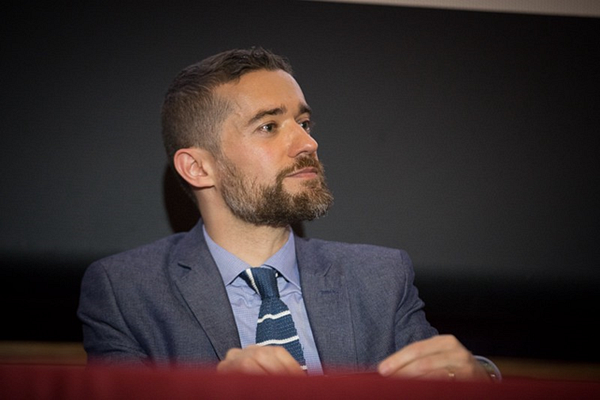Tourism for all — educating for purpose. A case study on inclusive leaders
February 12, 2020The revival of spirituality amongst Millennials and Gen-Z
February 19, 2020A story by Marco Pedroni
Artificial intelligence could take over humans. We and the machines will be so closely linked that we will be able to survive only if connected to the Internet. Scientists will have to agree to get more involved in public debates via social networks to counter the profusion of fake news.

These are just some of the 21 Lessons for the 21st Century written by the Israeli historian Yuval Noah Harari, author of a popular science trilogy including Sapiens: A Brief History of Humankind (2014) and Homo Deus: A Brief History of Tomorrow (2016) and completed in 2018 by the volume we are discussing here. It is not common to see academic work translated into multiple languages and selling millions of copies. The secret, if ever there is one, is simple: Harari talks about the future by explaining the present. At the price of a certain simplification and an often peremptory tone, 21 lessons guide us into a future present at the crossroad between two epochal revolutions: the first originated by ICTs, the second by biotechnology.
Algorithmic Power
An algorithm is a strange object: everyone knows that it exists, few know what it is and how it works. For Harari, the algorithm is above all a new mechanism of power. For millennia, mankind believed that authority stemmed from divine laws until liberal thought replaced them with faith in the free choices of individuals.
Big data are shaping a new transfer on the horizon: authority could soon shift from humans to algorithms. In the perspective of machines, we are bodies with limited computing capacity, defective programming and a lack of information. The ability to collect and process huge quantities of data creates the greatest threat ever to our freedom: to entrust decisions to a calculation system, in the belief that the algorithm efficiently exceeds human free will. The algorithm is now close to the ability to drive cars without human intervention and already used to decide who to give a bank loan, while already for many people the search on Google is already synonymous with finding the truth. Will we be able to resist the temptation to rely on the algorithm to decide which wars to fight, and how, which medical therapies to start, what rating to assign to a student’s answer to the exam? What role will individual consciousness play in future decision-making processes, and what will happen to the professions linked to these processes? Harari raises many questions without prefiguring techno-dystopian scenarios, but aware of the need to govern technology to enjoy its progress without suffering from its dark side. The challenge is the following: avoiding becoming cows from which to squeeze data, and maintaining our human ability to give direction to technological progress.
Connection addiction
Similarly, the internet access that we now depict as a form of empowerment, because it allows us to take advantage of information resources that were unimaginable until recently, could become a trap. Or an obligation. To the point of no longer being able to live a decent existence without connection.

Will insurance companies still agree to sell us their assistance if our car is not connected to the web in order to provide all our driving data? Will we refuse to wear biomedical devices capable of monitoring our health, knowing that the total transparency of our health data is the price to pay for the prevention and treatment of diseases? And if more pervasive forms of monitoring our habits and tastes (with methods that in the future will make the current techniques of Facebook, Google and Amazon almost naive) will allow us to have access to goods and services made on purpose for us at the best price possible, will we be able to prefer freedom to convenience? Multiple forms of pressure could force us to accept hyper-connection as a natural fact, making concepts such as privacy obsolete and reinforcing the capitalist idea of freedom: the freedom to consume that presupposes the duty to provide our data to those who ensure us a joyful flow of products.
Class struggle in algorithmic sauce
While science fiction is worried about a future war between men and robots, Harari suggests a more concrete possibility: the social polarization between super-men enhanced by algorithms and biomedical technologies, on the one hand, and an army of proletarians deprived of these new tools of enhancement, unable to manage the amount of information available and victim of conditioning systems, from advertising to political ones, which Big Data holders will be able to further refine. As a sociologist, although this scenario is supported only by Harari’s predictive imagination, I find this topic extremely interesting. And worrying. Because it is here that all the chickens are coming home to roost: who will control the algorithmic power? How the supranational states and entities, which already today often seem unable to resist the strength of the Tech Companies, will be able to avoid the further concentration of power in a few hands and the reduction of the rest of the population to mere data providers and attention, marketed to the detriment of the users who believe they benefit from it?
History can be written in many ways, and Harari seems to be open to both utopian and dystopian scenarios. What about us? The answer, and our future, begin to be written next time we access Instagram, Google or Amazon.
This is a story of the Futurist Club
By Science of the Time
Written by: Marco Pedroni

Marco Pedroni is a Sociologist of culture based in Milan. He writes about cultural economies, fashion, media, influencer marketing, gambling.
He is the editor of Homo Academicus, a blog on Medium.
He currently serves as an Associate Professor at the eCampus University (Italy). He has taught as an Adjunct Professor at the Università Cattolica of Milan, the University of Bergamo and the Politecnico of Milan, and as a Guest Lecturer for several courses and institutions, including the Milano Fashion Institute and the Marangoni Institute (Italy), the London College of Fashion, the Winchester School of Art, the Northumbria University and the Southampton Solent University (UK), the Aalto University (Finland), the Universidad of Sevilla (Spain), and the Izmir University of Economics (Turkey).
He is the author of Coolhunting (2010), the editor of From Production to Consumption: The Cultural Industry of Fashion (Interdisciplinary, 2013), a co-author of Fenomenologia dei social network (Phenomenology of social network websites, 2017), and a co-editor of Moda e arte (Fashion and Art, 2012). The full list of his scientific articles is available on Academia.edu



